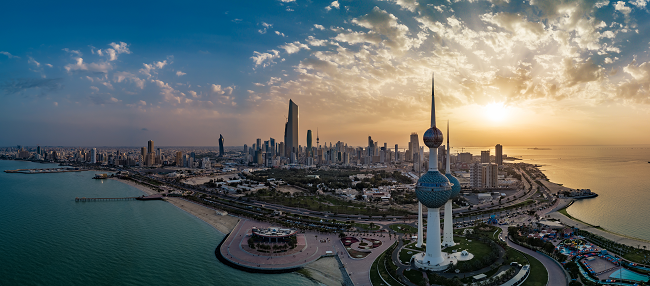
As Kuwait goes to the polls, the Daily Update explores the tensions created by the oil-exporting nation’s reluctance to diversify its economy.
Parliamentary elections
Today (4 April) marks the fourth set of parliamentary elections in as many years, with voters across Kuwait’s five constituencies posting ballots to elect 10 candidates from each to its national assembly.
Kuwait’s emir, the unelected head of state and monarch who is responsible for appointing the prime minister, encouraged voters to turn out amid voter fatigue. This election is also only the second time the almost exclusively Muslim country has voted during Ramadan, and the first in which the vote has occurred during the final – and most sacred – 10 days of the holy month.
Tensions between the emir and the national assembly have built for years. This election was called after a member insulted the emir, prompting him to dissolve parliament when the assembly failed to reprimand him.
Such tensions have stood in the way of planned reforms, including to the country’s welfare system. Kuwait operates a generous system of subsidised house, health services and free education, which many have called unsustainable in light of falling oil revenues, the economy’s key pillar.
This, combined with a reduction in public sector wages, have been repeatedly called for over the past decade, with little progress given the fractious political environment.
It’s been noted that this election continues the trend of declining female candidacy, with only 13 of the 255 applications coming from women, compared to 15 last year and 27 in 2022.
Economy
In contrast to other Organization of Petroleum Exporting Countries (OPEC+) members, Kuwait has not made significant strides towards diversifying away from oil, despite countries worldwide introducing green targets to limit emission-driving energy sources.
The oil price surges created in the wake of Russia’s invasion of Ukraine benefitted Kuwait, which saw GDP growth of 8.2% in 2022. However, 2023’s price drop saw a fall in growth, illustrating how closely tied the country’s fortunes are to oil.
To stimulate a price rise, production cuts mandated by OPEC+ saw Kuwaiti output fall by 128,000 barrels per day in May 2023, followed by a further 135,000 barrel per day reduction in March.
As a result, the country’s largest bank – the National Bank of Kuwait (NKB) – estimates the economy shrank 0.7% last year and could contract further, by 0.2%, this year.
Trade profile
One of the five founding members of OPEC+, Kuwait’s economy is geared toward the production and export of oil.
In 2022, the Observatory of Economic Complexity (OEC) reported that Kuwait’s exports totalled over US$101bn, with over $85bn from exports of crude and refined petroleum, petroleum gas and sulfonated, nitrated or nitrosated hydrocarbons, of which it was the world’s biggest exporter.
The leading importers of Kuwait’s products are China, India, South Korea and Japan.
The top Kuwaiti imports are luxury items: cars ($5.2bn), gold ($3.25bn) and jewellery ($2.95bn), with most coming from the UAE and neighbouring Saudi Arabia, as well as China.
UK-Kuwait trade
In the year to September 2023, Kuwait and the UK engaged in bilateral trade worth £4.9bn.
According to figures from the Department of Business and Trade (DBT), this was an increase of 17.7% on the previous year.
This was driven by an increase in the volume of UK imports from Kuwait, totalling £2.9bn, an increase of over 25%. The vast majority of this was made up of goods (£2.8bn); historically, this has been almost exclusively oil.
UK exports also rose 7.5% over the same period, reaching £2bn. Although the majority (57.2%) of this sum derived from services exports, at £1.1bn, this fell 10% compared to the previous year. The UK’s goods exports were valued at £841m by September 2023, an increase of 45.3%.



